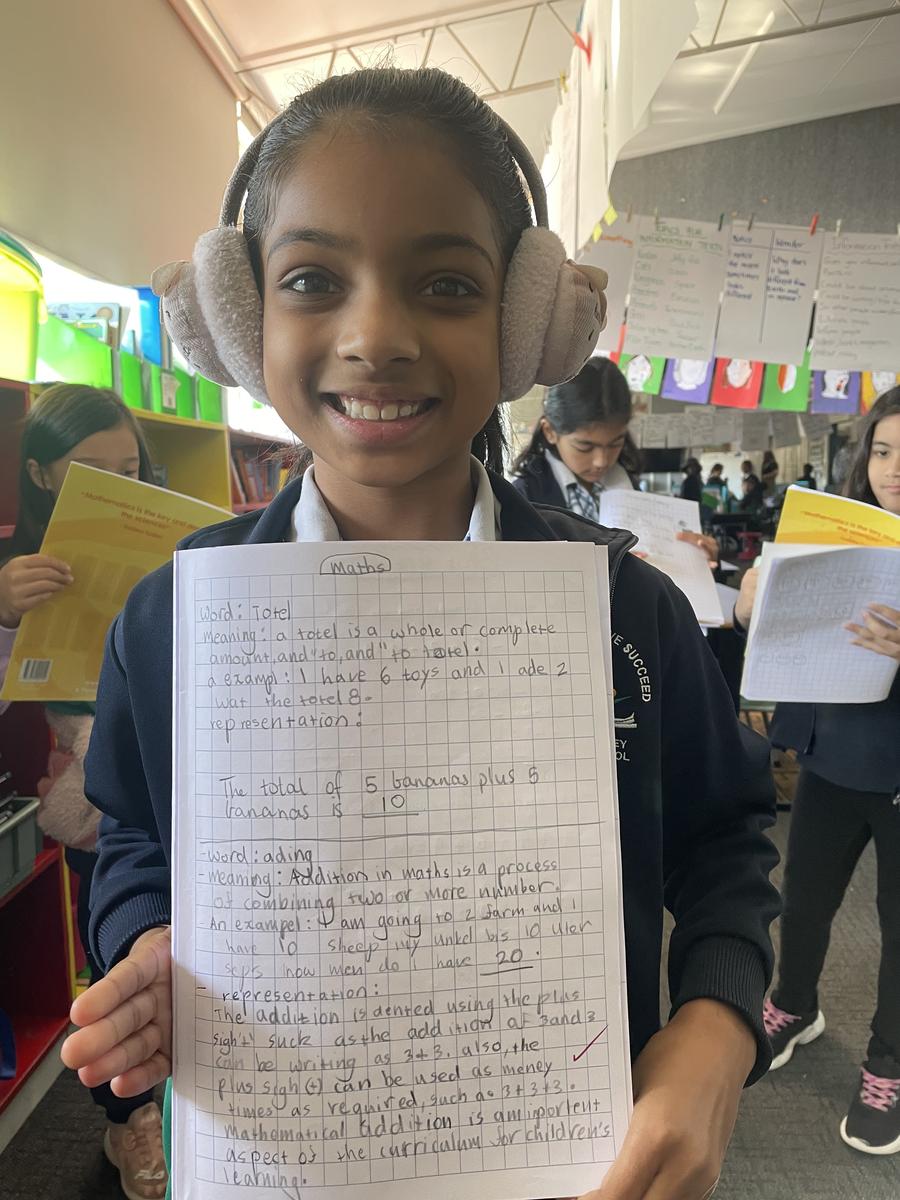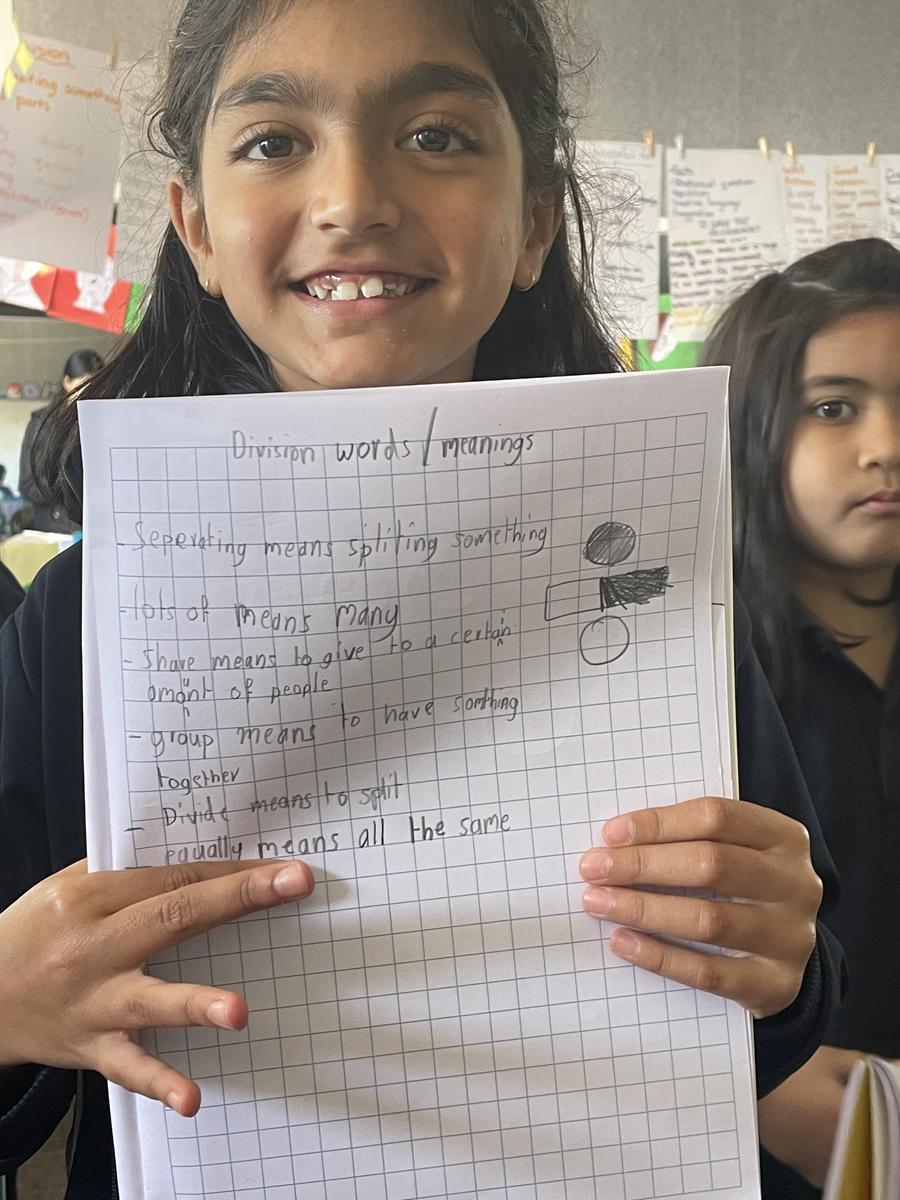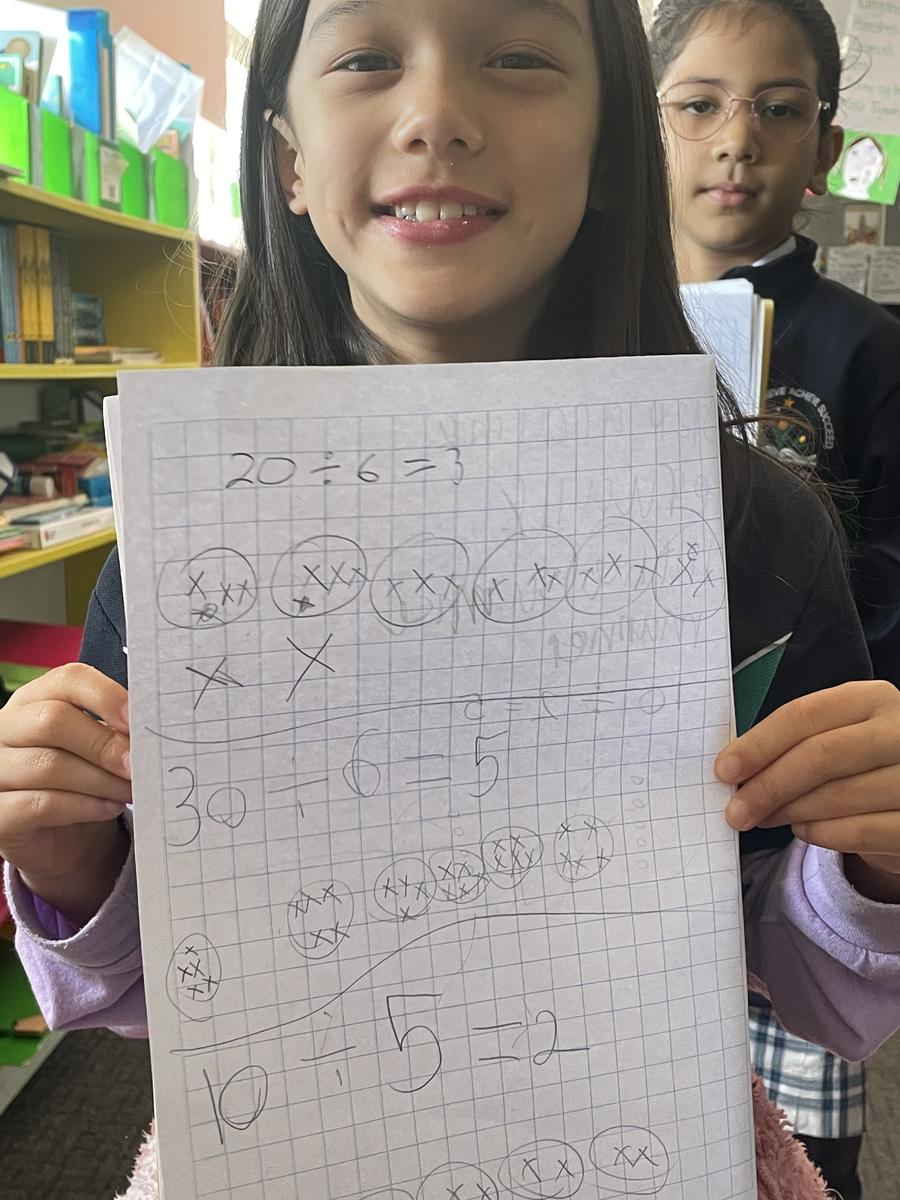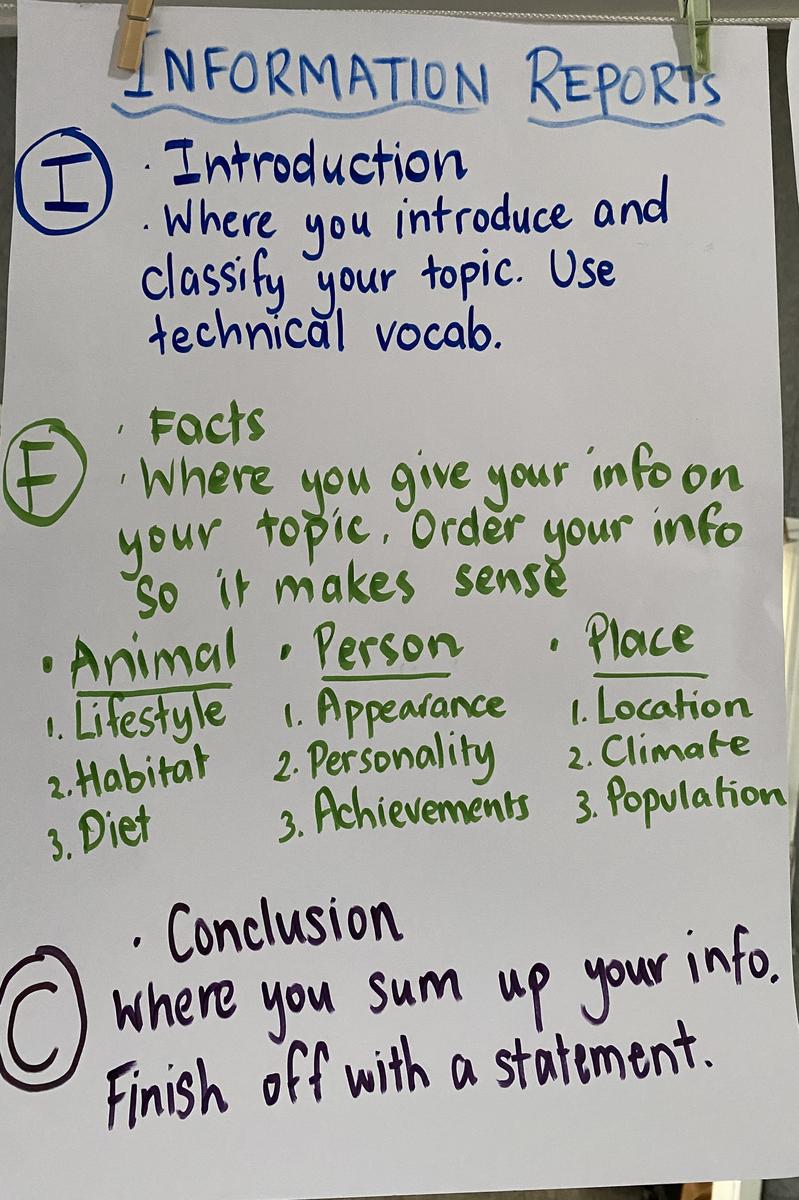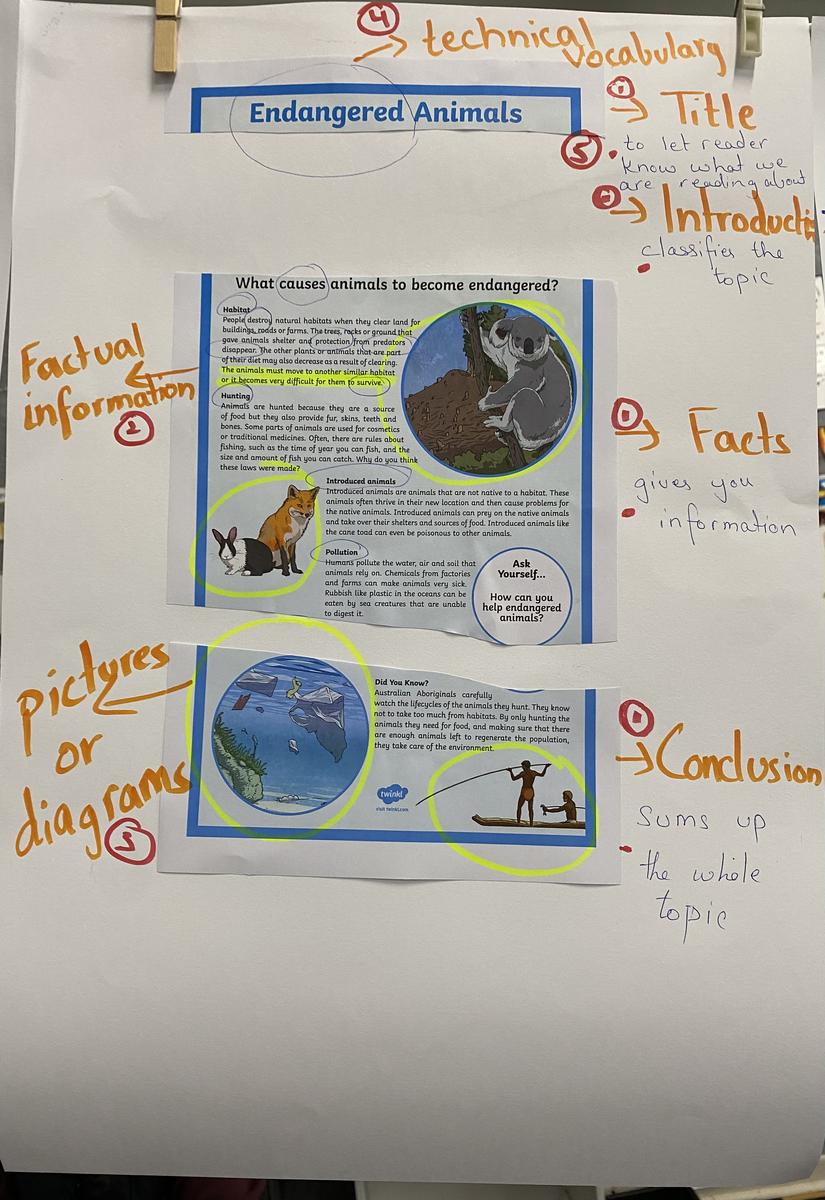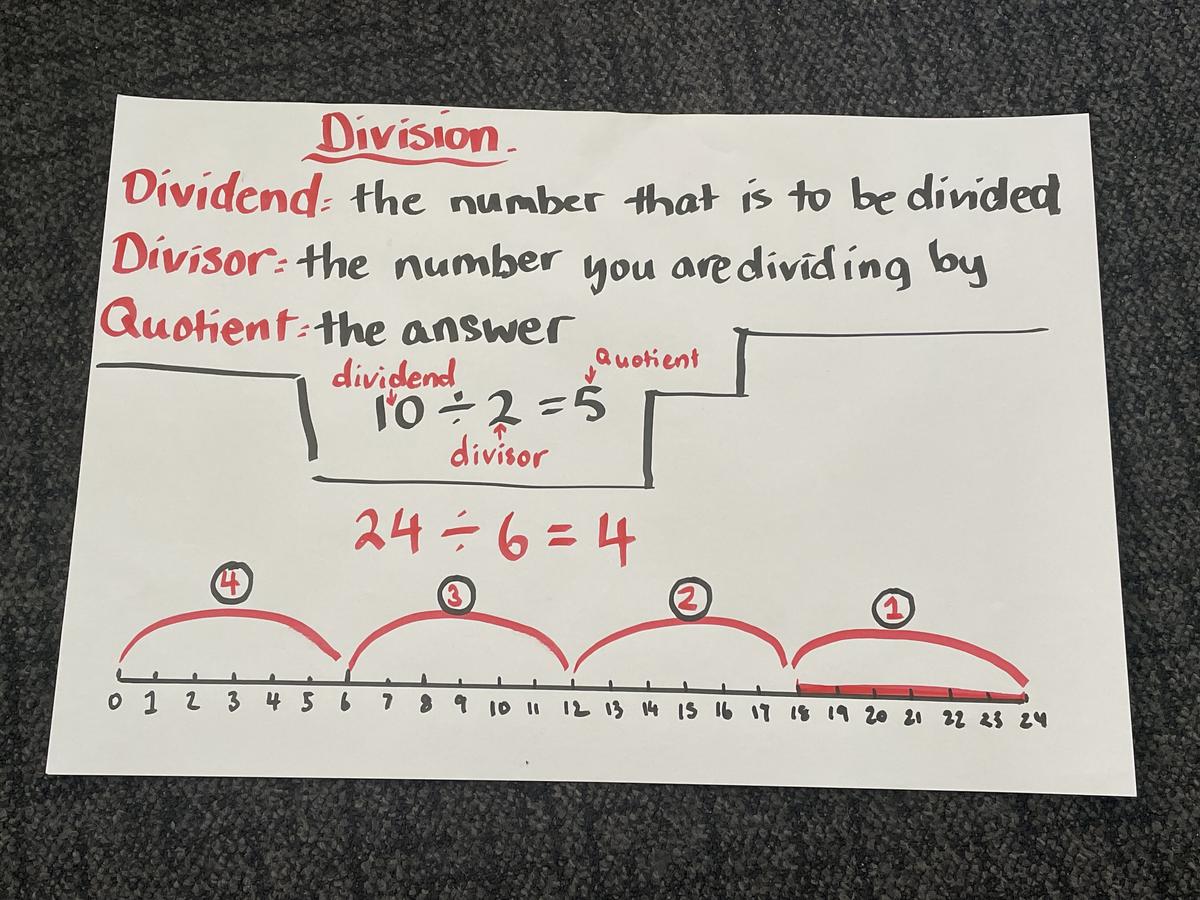Learning in Term Two
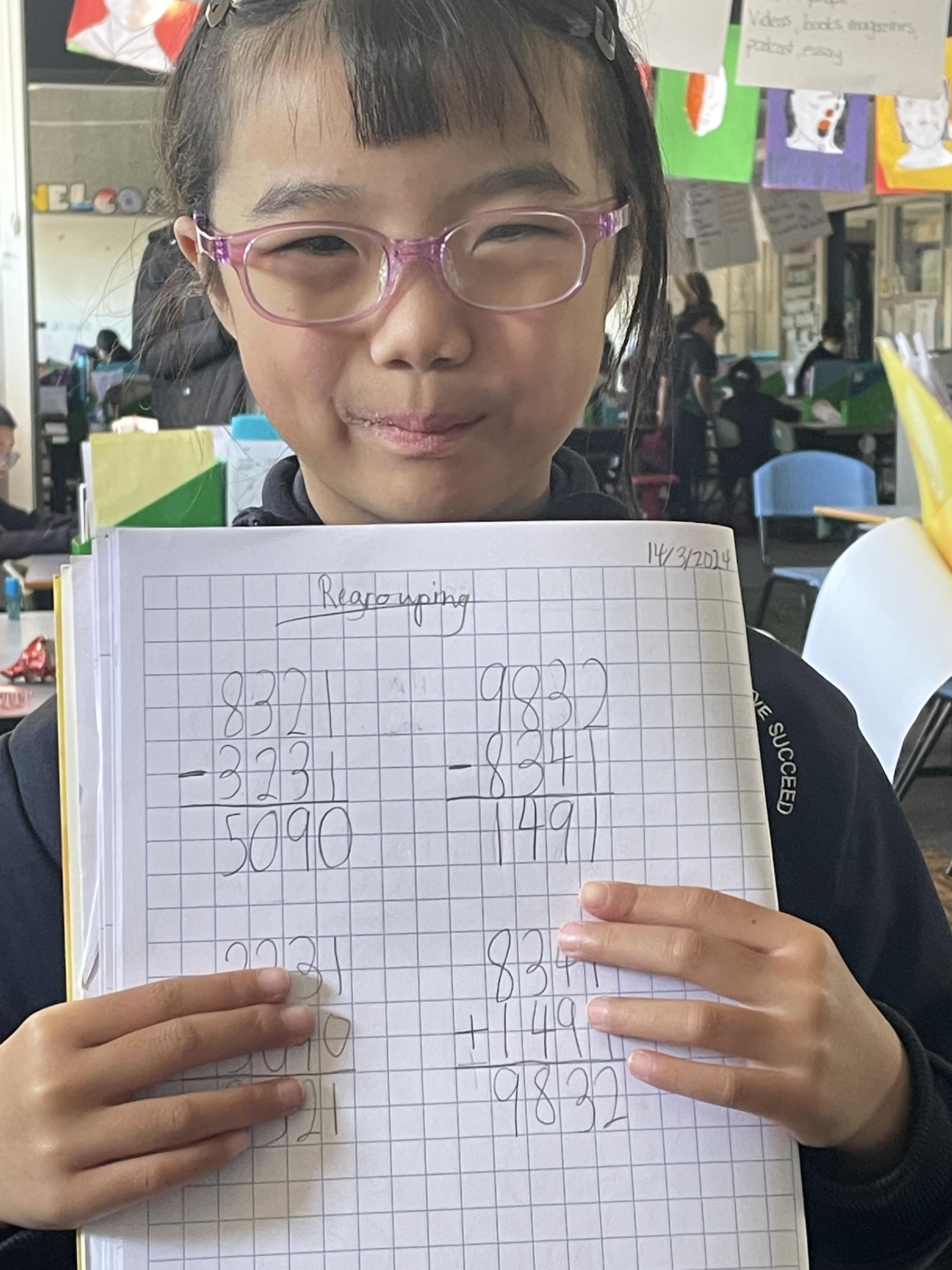
Reading
In Reading and Viewing for Term Two, students will analyse informative texts, as well as vocabulary that impacts the audience. They will be learning about information reports, specifically their structure, text features and language used. It is important to remember that children in the modern world access texts in a range of different ways. Often, a Reading and Viewing lesson could include different texts through digital or non-digital resources.
Speaking and Listening
Students will further develop their speaking and listening skills through presentations of learning, group discussions, class discussions and circle time. Active listening will be expected with the audience encouraged to question the presenter following their sharing. Students will develop their confidence presenting to an audience, speak clearly and use an appropriate tone to match their setting. Displaying respect for others’ thoughts and taking turns to speak, continues to be paramount to any speaking and listening learning tasks implemented in the classroom.
Writing/Spelling
During Term Two, students will learn how to write effective Information Reports using research and prior knowledge to form accurate texts. Throughout the term, they will experience the entire writing process of brainstorming, planning, drafting, editing/revising, and publishing. We will emphasise the importance of re-reading their own writing and editing/revising for meaning, clarity and better use of vocabulary. Students will continue to set personalised writing goals and reflection on their progress towards achieving their goals though regular writing conferences with their teacher to ensure every writer’s needs are catered for.
Students will continue to develop their spelling knowledge by investigating a range of spelling patterns/generalisations in our weekly spelling focus. Personalised spelling inquiries and personalised spelling words will continue to be a part of our spelling lessons to expand students’ vocabulary. Students will learn to spell words they misspelt in their writing, in addition to our weekly spelling focus. They will be encouraged to apply their spelling knowledge and vocabulary in their speaking and writing.
To support your child at home, you may find the following tasks helpful:
- Read a variety of books (fiction/non-fiction) with your child each night. Ask them questions to check their understanding. Eg: Who are the characters? What is the main idea of the text? Is it fiction or non-fiction? How do you know? What type of information can you see?
- Encourage students to create plans for their writing using inspiration from their environment
- Help your child with practicing their spelling words. Look, Say, Name, Cover, Write and Check.
Key Vocabulary to support your child’s success in Literacy:
- Glossary
- Factual
- Diagrams
- Technical Vocabulary
Mathematics
In Term Two, the Level Three students will continue to extend their understanding of the four proficiencies of Mathematics: Problem Solving, Understanding, Reasoning and Fluency and how to apply these strategies within their learning. Students will study Multiplication and Division, Statistics and Probability – Data Representation, Measurement and Geometry- Length & Area, and Time. They will learn a range of multiplication and division strategies, and the connections between all four operations. They will conduct chance experiments, identify and describe possible outcomes and recognise variation in results. They will measure, order and compare objects using familiar metric units of measurement and informal units of measurement such as LEGO bricks, Unifix and hands. The students will also be completing a unit on Time, where they will deepen their understanding of telling time to the minute and applying knowledge of AM and PM notations.
To support your child at home, you may find the following tasks helpful:
- Create arrays using art supplies like colored beans, buttons, or stickers. Write a division story problem and solve it.
- Collect data on simple questions, like favorite colours of family members or types of pets owned by friends and represent the data in a tally chart.
- Compare sizes of objects using shorter, longer, bigger and smaller.
- Use LEGO bricks for informal measurement.
- Create a routine/schedule for your day and allocate a time for each step, for example 8:00am- wake up and get dressed.
Key Vocabulary to support your child’s success in Mathematics:
- Shared
- Divide
- Data
- Formal/informal units
- Analogue/digital
Inquiry
In Term Two, the Level 3 students will investigate into our Inquiry question of, ‘How do human actions impact our environment?’ Students will build upon their prior knowledge of influences and decision making whilst weaving understanding of the Global Goal of “Life on Land” throughout the term with a sequence of learning and explorations. Within this unit, the students will be investigating different types of pollutants, what contributes to these and their impact. Students will be diving deeper into the understanding of population size vs pollution whilst exploring countries and different perspectives including how cultural decision-making is different to scientific decision-making! Through their transfer, students will take action by making informed decisions as they design project based on action to influence pollution. By the end of the unit, students will have a clear understanding of how human actions and the choices we make effect the environment we live in and share with others.
To support your child at home, you might find the following tasks helpful:
- Discuss the types of pollution. eg: land, sea and air pollution.
- As a family, where possible, recycle and reuse items. You might even like to start a compost!
- When going on a family walk, look out for ways to leave positive impacts on our environment such as disposing rubbish correctly, planting more trees.
Key Vocabulary to support your child’s success in Inquiry:
Environment
Impact
Human actions
Pollution
The Resilience Project (TRP)
During Term Two, students will be delving deeper into The Resilience Project. We will continue learning about Gratitude, Empathy and Mindfulness. We will conduct GEM chats and have discussions around how we can create a positive wellbeing and build resilience. We will learn about the school values of Integrity, Respect, Initiative and Global Empathy and how these four values are followed in the classroom and throughout the school. We will explore, discuss and demonstrate the expectations of behaviour.
Key Vocabulary to support your child’s success:
- Resilience
- Respect
- Gratitude
- Empathy
- Mindful
- Emotional literacy
Supporting your child at home with the Resilience Project
- We also encourage parents and families to have GEM chats at home. For example, what has made you smile today?
- Ask your child what they have been learning about in TRP learning time.
- Ask them how they have shown gratitude, empathy and mindfulness at school.
The Behaviour Matrix
The Grade Three classes are working together to create a Level Three Behaviour Matrix. The cohort came together to share their student voice on what they believe should be part of the expectations. This will provide students with a clear understanding of the expected behaviours. Students will be following the Behaviour Matrix in all areas of the school, ensuring consistency.

